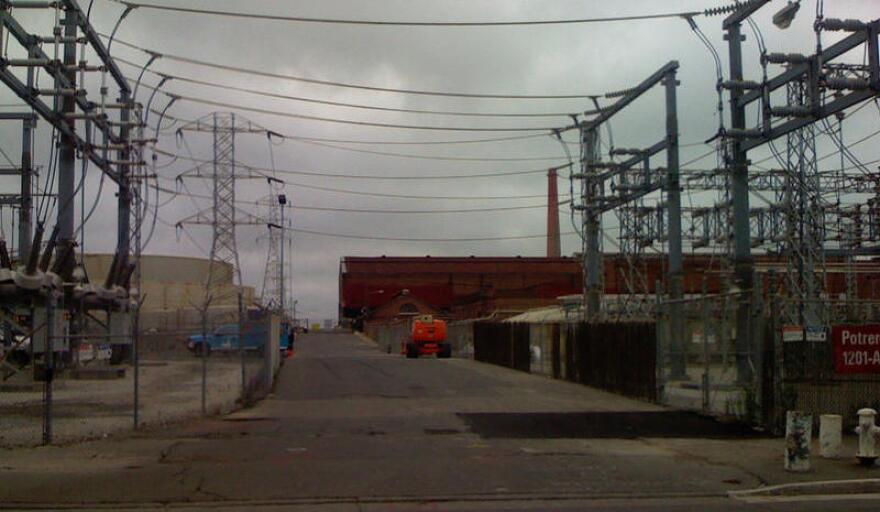San Francisco voters will see two competing clean-energy propositions on their ballots in November: Propositions G and H. But, what they won’t see is that the electrical union workers union that wrote Prop G is now actually supporting H.
It all started with a debate over how San Francisco would define clean energy.
“Simply put, clean energy is energy from renewable or clean resources, so generating from wind, solar, as well as geothermal,” says Hunter Stern, Business Representative for the IBEW Local 1245 electrical workers union.
About a third of PG&E power comes from renewable sources. The rest comes from gas-fired power plants, nuclear power, and large hydroelectric power, “but with the drought, not so much lately,” Stern says.
Gas-fired plants in particular create what’s considered dirty energy. So in 2007, the city started designing an alternative to PG&E called CleanPowerSF to provide customers with more access to those renewables.
But, according to state law, the city would be allowed to pay for its clean energy out of state, and use Renewable Energy Credits to call some of the other, dirty power it delivered “clean.” The union wasn’t happy about it.
“Sustainable power, for the IBEW, should mean sustainable jobs,” says Stern. “But it also matters because people who believe they are getting real green energy, actual green energy, should be getting that.”
So this July, the IBEW wrote Prop G – the “Disclosures Regarding Renewable Energy” measure – which only applies to CleanPowerSF. It would prohibit the city from labeling any energy it gets using credits as “renewable energy.”
According to city officials I spoke with, the current plans for CleanPowerSF do not include extensive use of these credits. But Hunter Stern and the IBEW want that on the books.
San Francisco Board of Supervisors president London Breed worried Prop G would limit the city’s ability to implement CleanPowerSF. Her main concern was that its restrictions on buying power would actually limit the city’s ability to call solar energy that it buys from private citizens “green”. So, she wrote Prop H, a poison pill for G.
“Prop H is plain and simple. All that does is say to voters, we want to implement clean power and we will follow state law,” says Breed.
Prop H says the city should be able to use all the clean-energy sources it’s allowed under state law.
“Of course we want a hundred percent [clean power],” says Breed. “But, unfortunately, it can be quite expensive and not affordable and not competitive. And so we have to start somewhere.”
So when San Franciscans open their voter guides, they’ll see Prop G and Prop H. But what they won’t see is a statement from the electrical workers union about why they’re supporting G. Because they’re not – the city and the union have already resolved their differences. After Prop H hit the ballot, the supervisors and the union got together to negotiate a compromise. In exchange for the union's support of Prop H, Breed made a few revisions.
“What we did in our ballot measure was specifically provide information that clearly articulates to residents exactly where the power is coming from, and the specifics of what the power is, so that folks know exactly what they're getting as it relates to clean power,” says Breed.
And the city agreed to officially limit its use of renewable energy credits.
Once a voter-initiated proposition gets enough signatures to make the ballot, it’s on there for good. So Hunter Stern and the IBEW can’t take back G. But Stern says that’s no problem. “G was how we got H, so there's value. But we want people to vote for H.”
When CleanPowerSF launches in early 2016, San Francisco residents will be automatically opted in. Customers can stick with their plan, or they can opt out.






